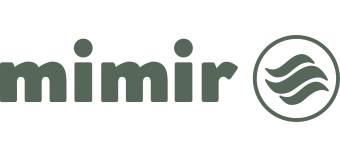
Vacatures geplaatst door Universiteit Twente
Mimir verzorgt het geautomatiseerde beheer van vacatures op vacaturebanken voor Universiteit Twente.
Laatste vacatures
Postdoc position in open-source respiratory signal analysis (M3RESP)
You will work on the development of M3Resp, a new open-source FAIR platform for multimodal monitoring of respiratory signals in the Intensive Care setting, including surface EMG (sEMG), electrical impedance tomography (EIT), mechanical ventilator waveforms, and respiratory muscle pressures. This project is a close collaboration between the University of Twente (CRPH - Cardiovascular and Respiratory Physiology group, sEMG expertise center) and the Intensive Care department of the Erasmus MC (ROTARC - Rotterdam Advanced Respiratory Care group, EIT expertise center), two internationally leading institutes in respiratory and mechanical ventilation research. Open Science NL provides the funding to stimulate open, reusable, community-driven research software. Both institutions provide a full-time position each for the duration of 1 year, and both candidates will closely collaborate with each other and with data researchers in building a sustainable national digital research infrastructure.
By integrating and extending two existing research software packages (ALIVE and ReSurfEMG), you will enable unified data handling, signal processing, and user-friendly GUI-based analyses for clinical and physiological research.
You will combine Python-based software development, biomedical signal processing, and FAIR data design, and contribute to a platform that supports researchers in understanding and analyzing complex respiratory time-series data.
You will merge codebases, implement dedicated data containers, port and optimize signal processing algorithms, build a Dash-based GUI, and develop standardized analysis pipelines. The role includes community-oriented tasks such as documentation, tutorials, and user support. The work requires strong programming skills, experience with time-series data, and an interest in biomedical signals and open-source research software.
AcademicTransfer
2 sollicitaties
0 views
23-02-2026 Universiteit Twente
PhD position on: “Functional Membranes through advanced foaming”
Within Membrane Surface Science (MSuS), part of the Department of Membrane Science & Technology (MST, www.membrane.nl), and Advanced Organ Bio-engineering and Therapeutics (AOT), both of the University of Twente, the Netherlands, we have a vacancy for a PhD student.
The project will focus on the production and characterization of a functional membranes, e.g. membranes that hold an additional functionality beyond separation such as absorbative or catalytic properties. The functionality will come from the addition of (nano)particles during the production process, including a foaming step to increase access to these functional particles. Such membranes will be relevant to several important applications, ranging from the removal of micropollutants from waste water and drinking water, but also the removal of protein bound toxins in kidney dialysis.
The project is part of a larger NWO-VICI project, and as such the recruited PhD student will be expected to closely collaborate with at least 2 other PhD students and one postdoc within the project. While this PhD project will focus on sustainable membrane production, others will focus on advanced functionalities and on upscaling of these most promising membranes. This team oriented research project is intended to be a highly collaborative environment. Moreover, the project will be well integrated in the MSuS and AOT groups, allowing extensive collaboration and knowledge exchange.
As part of the PhD program, you would have the opportunity to receive further education within the Twente Graduate School and within various graduate education programmes in the Netherlands. Furthermore, you will be expected to actively contribute to the teaching program, e.g. by supervising BSc and MSc assignments or by acting as teaching assistants in courses taught by department staff members.
AcademicTransfer
18 sollicitaties
0 views
23-02-2026 Universiteit Twente
Venture Manager
Maak impact met ondernemerschap en innovatie
Bij Universiteit Twente geloven we in het verbinden van wetenschap en ondernemerschap. Wij zijn dé ondernemende universiteit van Nederland, waar baanbrekend onderzoek leidt tot startups die maatschappelijke en economische waarde creëren. Met een sterke focus op hightech en mensgerichte innovatie is UT een broedplaats voor ideeën die de wereld veranderen. We hebben een groeiend portfolio van spin-offs en werken nauw samen met investeerders, bedrijven en kennisinstellingen om innovatie te versnellen.
Jouw rol als venture manager
De Venture Manager is verantwoordelijk voor het begeleiden en ondersteunen van een portfolio van veelbelovende (deeptech) start-ups die als spin-off vanuit de Universiteit Twente zijn ontstaan. Je combineert strategisch inzicht, ondernemerschap en financiele expertise om de ventures zich te laten floreren en groeien.
Werkzaamheden
Als venture manager:
- Ben je vanuit de aandeelhoudersrol verantwoordelijk voor een significant aantal spin offs (ventures) in het portfolio;
- Coach je het spin-off team bij het ontwikkelproces van de onderneming en help je de groeikans te versnellen via je eigen inzet en connecties met bedrijfsleven, financiers en overheid;
- Signaleer je financieringskansen en begeleid je bij investeringsvraagstukken, daarbij ondersteun je bij het opstellen van een onderbouwde kapitaalbehoefte en helpt bij het voorbereiden van pitches richting investeerders of fondsen.
- Afhankelijk van de fase van de spin-off en daarmee samenhangend de samenstelling van de aandeelhouders heb je in sommige trajecten een co-leading rol, een sparrende of volgende rol;
- Je verbindt het spin-off team met onder andere relevante experts, investeerders en fondsen;
- Draag je actief bij aan een sterk, samenwerkend startup/spin-off ecosysteem;
- Vertegenwoordig je UTH op netwerkbijeenkomsten en events;
- Registreer je de voortgang, begeleidingsactiviteiten en resultaten van de ventures in je portfolio om daarmee de impact zichtbaar te maken.
AcademicTransfer
0 sollicitaties
0 views
23-02-2026 Universiteit Twente
PhD positie: Real-time voorspellingen van overstromingen om geïnformeerde evacuatiestrategieën mogelijk te maken
Door klimaatverandering zullen naar verwachting de risico’s van rivieroverstromingen toenemen. De gevolgen van zulke overstromingen kunnen beperkt worden door gebruik te maken van vroegtijdige waarschuwingssystemen, zodat tijdige evacuatie van de getroffen gebieden mogelijk is. Hierbij geven hydrodynamische modellen een nauwkeurig beeld van de gebieden die gevaar lopen, maar ze zijn te traag om toe te passen voor korte termijn voorspellingen bij een aankomende overstroming. Daarom wordt in dit onderzoeksproject een machine learning methode ontwikkeld dat wel in staat is om real-time overstromingskansen te voorspellen. Met behulp van de ontwikkelde tool kan een crisisteam mogelijk getroffen gebieden door een overstroming tijdig evacueren. Het doel van het onderzoek is om een machine learning methode te ontwikkelen dat instaat is om overstromingskansen nauwkeurig te voorspellen voor ongeziene gebieden. Ondanks dat de samenwerkingen binnen dit project voornamelijk richten op Nederlandse waterbeheerders is de tool ook inzetbaar in andere gebieden.
In dit project werk je nauw samen met de praktijk. Het is van groot belang dat een potentiële machine learning methode aansluit bij de wensen van de gebruikers. Er zal een dashboard ontwikkeld worden dat een snel en makkelijk te interpreteren overstromingsbeeld geeft op basis van toekomstige weersvoorspellingen. In samenwerking met de gebruikers van deze tool (diverse waterschappen en Rijkswaterstaat) zal onderzocht worden aan welke eisen het dashboard moet voldoen om daadwerkelijk operationeel toepasbaar te zijn. Tijdens een training met het crisisteam zal het dashboard uitvoerig getest worden aan de hand van realistische overstromingsscenario’s.
Het onderzoek zal voornamelijk uitgevoerd worden aan de Universiteit Twente. Daarnaast werk je één dag in de week aan relevante en gerelateerde projecten bij het adviesbureau HydroLogic. HydroLogic is een toonaangevend adviesbureau op het raakvlak van water en ICT met het hoofdkantoor op loopafstand van het centrum en centraal station van Amersfoort. Bij HydroLogic zetten ongeveer 40 bevlogen waterprofessionals geavanceerde modellen en duurzame ICT-oplossingen in om samen met waterbeheerders wateruitdagingen effectief aan te pakken. Voor dit onderzoek is het belangrijk om goed ingebed te zijn in de organisatie en daarom is beheersing van de Nederlandse taal essentieel.
AcademicTransfer
1 sollicitatie
0 views
23-02-2026 Universiteit Twente
Research Technician
We offer a diverse job for a practical technician who feels at home in a mechanical workshop environment with new challenges nearly every week. You can be the go-to expert for developing and refining technical setups that enable our researchers to conduct novel fluid-dynamics experiments.
As a research technician you will aid our experimental scientific research in fluid mechanics by designing and constructing new technical setups. You have a background in mechanical engineering (werktuigbouwkunde) or similar, you are skilled in operating machines in a workshop (lathe / mill / laser cutter) and are skilled in assembly. Preferably, you have affinity with 3D CAD design (SolidWorks) and are willing to learn the many scientific setups in our labs that are fully designed in CAD. You will work in a team with two other research technicians and one research engineer, you are motivated to learn new techniques, and you are self-driven.
AcademicTransfer
2 sollicitaties
0 views
23-02-2026 Universiteit Twente


